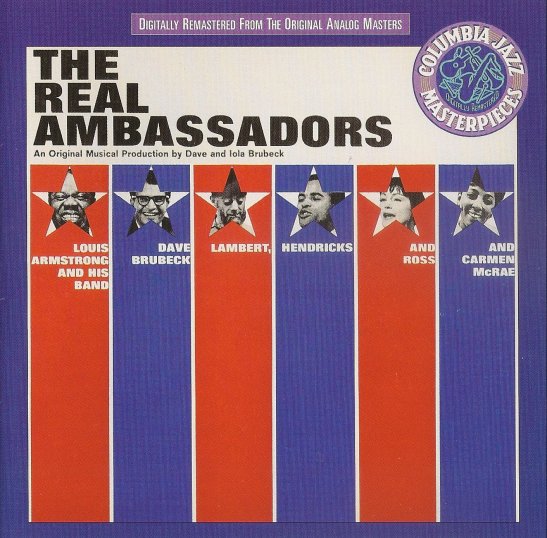Simanaitis Says
On cars, old, new and future; science & technology; vintage airplanes, computer flight simulation of them; Sherlockiana; our English language; travel; and other stuff
DAVE BRUBECK
ONE OF the giants of jazz, and of modern music in general, Dave Brubeck passed away December 5, just one day short of his 92nd birthday. Brubeck was more than a jazz pianist. He was a composer of orchestral and choral works and a mass, an eloquent spokesman of his genre and a life-long advocate of civil rights. His life enriched many of us in a multitude of ways. Here’s a selection of my own favorite recordings, all available these days on CD.
Attending the College of the Pacific, Brubeck eventually studied music, his mother’s art, rather than following his father’s lead of becoming a California cattle rancher. Promptly drafted into the U.S. Army upon graduation, he served in Europe during World War II.
The Brubeck Octet evolved from Dave’s studying with Darius Milhaud at Mills College under the G.I. Bill. This French composer had written in the jazz idiom as early as 1923 with his Création du Monde. Milhaud’s influence on Brubeck was more than musical: Dave and his wife Iola chose the name Darius for their first child.
The Octet’s sound is cool, controlled and full of counterpoint. The wonderful interplay of Brubeck’s blocky piano and Paul Desmond’s lyrical alto sax is already there.

Jazz at Oberlin, the Dave Brubeck Quartet, Concord Music, 2012, from a Fantasy Records original, 1953.
My enthusiasm for the Quartet dates from the 1953 album, Jazz At Oberlin. “These Foolish Things” may be the perfect example of concert jazz, Desmond with soaring lyricism, Brubeck improvising Gershwin at one point, Bartok at another. The applause after each improvisation shows that I’m not alone in my enthusiasm.
By the late 1950s, Brubeck had already made the cover of Time (November 8, 1954). The quartet had undertaken a State Department tour to the Middle East and Poland. The latter influences led them to Time Out, exhilarating jazz in other than traditional 4/4 time. The album is best known for “Take Five,” in which drummer Joe Morello and bassist Eugene Wright take the Quartet into a jagged 5/4—but what jazzy 5/4! My favorite is “Three to Get Ready,” with the quartet alternating between two bars of 3/4 followed by two bars of 4/4—all with inventive improvisation.

The classic Dave Brubeck Quartet: Dave on piano, Paul Desmond on alto sax, Eugene Wright on bass and Joe Morello on drums.
It was the presence of bassist Eugene Wright, an African-American, that brought forth Brubeck’s profound feelings of racial equality. During the 1950s, the quartet had lots of gigs on college campuses, many in the still-segregated South. Rather than yielding to pressures of hiring another bassist, Brubeck cancelled twenty-three of the twenty-five dates in one tour.
It was also the height of the Cold War, and the State Department recognized the appeal—and propaganda value—of jazz around the world. There was high irony in this, of course, in that black and white musicians were being sent overseas to represent a nation that still had significant elements of Jim Crow about it.

The Real Ambassadors, an Original Musical Production by Dave and Iola Brubeck, Columbia Jazz Masterpieces, 1994; originally performed in 1962.
Dave and Iola responded by writing a musical production, The Real Ambassadors, featuring jazz great Louis Armstrong, Carmen McRae and the trio of Dave Lambert, Jon Hendricks and Annie Ross. One of its most moving pieces is “They Say I Look Like God,” ending with Armstrong’s lyric “Really free” taking on full meaning. There’s also great satire in Lambert, Hendricks and Ross’ “Cultural Exchange,” the Brubecks’ take on a Gilbert and Sullivan patter song.

An excellent source on this period: Satchmo Blows Up the World, Jazz Ambassadors Play the Cold War, by Penny M. Von Eschen, Harvard University Press, 2004. Its Armstrong and Brubeck adventures at Berlin checkpoints are great. Both Amazon.com and ABEBooks.com list the book.
I close on a personal note. In the 1950s, I recall a Cleveland night club called the Swinging Sewer [Correction from friend Duane Polo: It was the Cotton Club/Modern Jazz Room, at 4th and Huron…]. It featured top jazz musicians, Miles Davis, Philly Joe Jones, Gerry Mulligan, Chico Hamilton—and Dave Brubeck. As I was underage, my visits to the place were limited to its Sunday afternoon jazz concerts. Entrance was free; though there was a two-drink minimum ($5 for my two Cokes).
These Sunday concerts introduced me first-hand to the varying styles of East Coast Bebop and West Coast Cool. The likes of Mulligan, Hamilton and Brubeck won out.
Thank you, Dave. ds
© Dennis Simanaitis, SimanaitisSays.com, 2012



Brubeck is an American legend who has enriched our lives, and will continue to do so forever. Thanks for the nicely done tribute, DS…